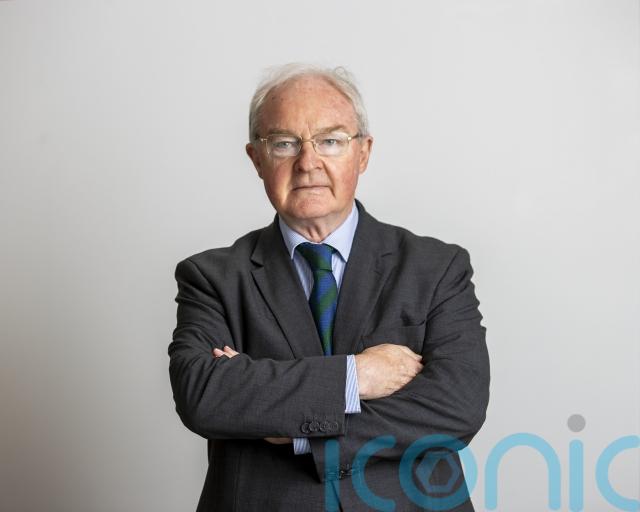
The vast majority of veterans who served in Northern Ireland are totally opposed to the reintroduction of legacy inquests, MPs have been told.
Northern Ireland Veterans Commissioner David Johnstone told a Westminster committee there is a “fundamental unfairness” in the inquest process for conflict-related deaths.
Mr Johnstone insisted veterans’ concerns were not based around “any fear of past actions” but rather a sense that the coronial system was disproportionately focused on killings committed by state actors.
A legal guillotine came into effect one year ago that halted inquests and civil court cases linked to the Troubles.
That move came as part of the last UK government’s contentious Legacy Act.
The Act established the Independent Commission for Reconciliation and Information Recovery (ICRIR) as an alternative mechanism for families seeking truth and justice about the deaths of their loved ones.
The Labour Government has vowed to repeal and replace parts of the Act and reinstate inquests and civil cases. However, it is retaining the ICRIR.
Representatives of military veterans and former police officers gave evidence on Wednesday to the Northern Ireland Affairs Committee.
The committee is currently holding an inquiry into the Government’s approach to legacy issues.
In response to questions from committee member and DUP leader Gavin Robinson, Mr Johnstone voiced concern about the proposed return of legacy inquests.
“I think it’s important to say first of all that there are differing views, of course, among the veteran community on the whole issue of legacy and, indeed, in terms of the reintroduction of inquests. However, I’m pretty confident that the vast, vast majority of veterans of Northern Ireland would be totally opposed to the reintroduction of inquests,” he said.
“I do think though it’s very, very important for the committee to understand that the reason for the opposition is not based around any fear of past actions.
“It’s not based around any fear of justice or the natural pursuit of justice where rules of engagement have been broken. The issue is around the fundamental unfairness of the inquest process and that is absolutely key.”
Mr Johnstone raised an example of a proposed inquest for a former senior IRA figure and questioned why there were no comparable inquests for the victims of the IRA unit he led.
“So this whole legacy process there’s around about 33 inquests that will reopen if the current Government policy plays out,” he said.
“Of that only two are for republican actions and the rest are either state forces, around about 17, where a member of the security forces put the trigger in an incident, and the rest are by loyalists.
“And when you see the overall breakdown of the deaths in the Troubles, this is a fundamental unfairness to the process.”
Dave Holmes, who is part of the Rolling Thunder group that represents veterans who served in Northern Ireland, expressed concern that inquests were being used as a means to initiate prosecutions against former soldiers.
“With the inquests they have a tendency, or can have a tendency, to lead to investigation based on the findings of the inquest and then potentially back to prosecutions, or at least even if it doesn’t become a prosecution, punishment by ‘lawfare’,” he told MPs.

Chris Albiston, representing the Northern Ireland Retired Police Officers Association, said former officers were not opposed to the principle of inquests.
However, he suggested that the ICRIR could “do the same job”.
“Our view is that there’s no reason why the ICRIR could not effectively discharge the responsibilities which were once envisaged for it in respect of inquests,” he said.
Last year the Court of Appeal in Belfast part allowed an appeal taken against the Legacy Act, ruling there were breaches of both human rights law and the Windsor Framework that governs post-Brexit arrangements in Northern Ireland.
Among its findings, the court found that a Government veto power over what sensitive material can be disclosed to bereaved families by the ICRIR is unlawful.
The court also ruled that the ICRIR does not provide victims and their next of kin adequate means to participate in its processes.
The Government has appealed the case to the Supreme Court. However, Northern Ireland Secretary Hilary Benn has also vowed to make reforms to how the ICRIR operates.
Axel Schmidt from Ulster Human Rights Watch, a group that supports families bereaved by terrorism, told the committee that the ICRIR had more power than a coroner.
“So, therefore, there is more to gain in going through the independent commission than to go through an inquest,” he said.
Mr Schmidt said he was of the understanding that Mr Benn intended to introduce legislation that would address the concerns identified by the courts in relation to next of kin participation in the ICRIR’s processes.
He said if that was achieved there was “no reason to reintroduce inquests”.
Subscribe or register today to discover more from DonegalLive.ie
Buy the e-paper of the Donegal Democrat, Donegal People's Press, Donegal Post and Inish Times here for instant access to Donegal's premier news titles.
Keep up with the latest news from Donegal with our daily newsletter featuring the most important stories of the day delivered to your inbox every evening at 5pm.